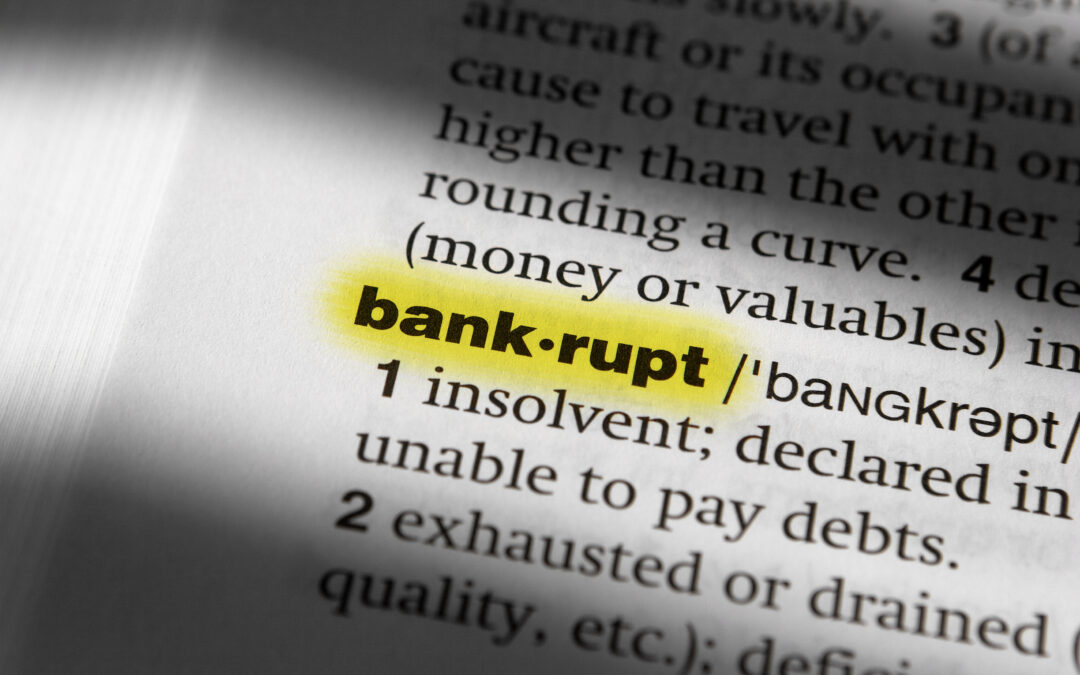Numerous factors might make the mere thought of declaring bankruptcy in California seem overwhelming. The good news is that consulting with a knowledgeable bankruptcy lawyer can give you peace of mind by answering your questions and verifying if bankruptcy is the best option. As you prepare to speak with an attorney, continue reading to better understand some of the most frequently used terms in this industry.
Chapter 7 Bankruptcy
The most common form of consumer bankruptcy. A Chapter 7 filing does not require you to make any payments to your creditors; any qualified debt is wiped out and discharged. After your case is successfully completed, you will no longer have any legal responsibility to pay your discharged debt. Not everyone qualifies for a Chapter 7, and in some situations, a Chapter 7 is not the best option, so consulting with a qualified bankruptcy lawyer will help you determine if this is the best choice.
Chapter 13 Bankruptcy
If Chapter 7 is not an option, most consumers will be considering a Chapter 13 filing. Chapter 13 is a court-ordered repayment plan where you make payments to your creditors based on your specific circumstances. The repayment is court-ordered, so the creditors have little to no control over how much you pay, and, in many instances, you are only required to pay a fraction of what you owe. Chapter 13 Bankruptcy can also save a home from foreclosure, rescue a repossessed vehicle or pay back debts that cannot be discharged in Chapter 7.
Petition
The petition is the initial paperwork submitted to the court. Once this document is submitted, your bankruptcy is officially filed, and you are immediately protected from your creditors. All collection activity must stop, including foreclosures, wage garnishments, or future lawsuits or levies.
Automatic Stay
The protection that you receive from your creditors when you file for bankruptcy is called the Automatic Stay. Creditors are ‘stayed’ from any action against you. They cannot contact, collect or harass you in any way while the Automatic Stay is in effect. Creditors must wait for the Automatic Stay to end or, alternatively, get permission from the court to get relief early.
Schedules
Schedules make up the majority of the documents filed after the petition. In your bankruptcy case, they serve as a breakdown of your current financial situation for the court to review. You must provide supporting documentation to evidence the finances laid out in your schedules so the court can determine their accuracy. Your lawyer will evaluate your situation to ascertain what documentation will be required to complete your schedules accurately.
U.S. Trustee / Trustee
The Department of Justice appoints a Trustee to manage your file. They review your documents for accuracy, determine if there are assets to sell and if the best interest of creditors is being met. An actual United States Trustee or U.S. Trustee is responsible for managing trustees and keeping an eye on Chapter 11 cases without creditors’ committees.
Means Test
In consumer bankruptcy, the court uses a formula to determine what type of bankruptcy you qualify for and what you can afford. This is called The Means Test. It’s used to establish if you will be required to make payments through a Chapter 13 bankruptcy filing or if a Chapter 7 bankruptcy is appropriate. The rules on what numbers you can and cannot use are regulated and very specific, so The Means Test can be challenging to fill out correctly. One of the benefits of working with a California bankruptcy attorney is that they will ensure that your Means Test is correct, so there are no future problems with your case.
Discharge / Dischargable
The debts that can be wiped out and completely forgiven when you apply for bankruptcy are called dischargeable debts. It becomes enforceable through a court order known as discharge. Non-dischargeable debts are any debts that survive bankruptcy filing and must still be paid even if your bankruptcy case is successful. It is best to speak with a qualified bankruptcy attorney to determine if any of your debts are excluded from discharge.
Reaffirm / Reaffirmation Agreement
When you want to keep debt out of bankruptcy, you must reaffirm or enter into a Reaffirmation Agreement. This is typical for secured debts like a car loan, where you want to keep the vehicle and maintain payments. You should never consider such an agreement without speaking with a skilled California bankruptcy lawyer. Not all debts may be reaffirmed, and the court must approve the Reaffirmation Agreement.
Expert Advice
Bankruptcy can be a confusing process, and nothing can replace the value of expert advice by a qualified professional. You get this when you contact Winterbotham Parham Teeple, a PC at 800.400.9000. Our experts will listen to your story and help you understand if you qualify for bankruptcy. Call us today and take the first step towards a debt-free tomorrow.




